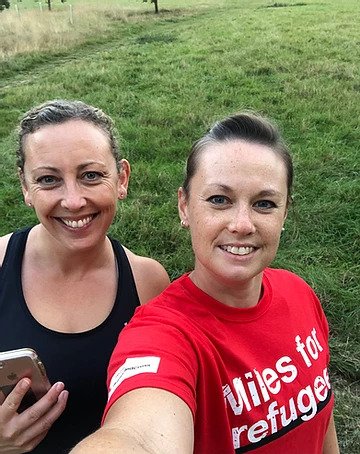How does exercise help my mental health?

We have all heard that exercise is good for us, both physically and mentally but why? and What’s the science behind it?
Research shows that the process of moving the body promotes all kinds of changes in our brain.
We can improve our performance of movements through neural pathway growth, we can see reduced inflammation in the brain and the new activity patterns from movement promote feelings of calm and well-being. This sense of well-being improves through exercise because of the release of endorphins, chemicals that both energise your spirits and promote feelings of positivity.
When day to day life is busy, we can spend long periods of time in a cycle of fight or flight, this is where we are in a constant state of adrenaline and this can cause stress in the body. Exercise can help us use some of this excess adrenaline, so that we give our system a bit of rest bite.
Meditative movement.
The mind-body connection is something that we hear about in yoga and Pilates but really it can be applied to any form of movement. By concentrating and focusing on the feeling in the body, one movement at a time there is no space for busy stress inducing thoughts to manifest themselves.
When we exercise and are doing a particular movement you will get a bigger benefit if you pay full attention to what your body is doing and how it feels, rather than by letting your mind wander.
You can practice meditative movement the next time you are walking, by zoning into the sounds you hear as you go and by then switching that concentration to how your foot feels as it makes contact with the ground. By concentrating on the senses of sound or feel of the ground we find some quiet time to help us break the cycle of negative or chaotic thoughts that can feed depression or anxiety.
Movements that help us slow down out breathing and bring focus on to our breath like yoga and Pilates anchor to the now. As we learn from mediation practices our breath is always there and can help us focus inwards and away from the many things that you are juggling in day to day life
How exercise in nature can help.
It is World Mental Health day on Sunday 10th October and this is a great time to get out in out in nature see the trees changing colours. Sunlight prompts the release of serotonin, which can improve mood and cognitive function and also contributes to a normative sleep cycle. So, by being outside in natural light if you experience seasonal affective disorder (SAD), a type of depression that affects people during particular seasons or times of year.
Even being around trees was found to reduce stress levels in a self-reported study (Autonomic Nervous System Responses to Viewing Green and Built Settings https://www.ncbi.nlm.nih.gov/pmc/articles/PMC4690962/)
For more information on the link between nature Mind has more information https://www.mind.org.uk/information-support/tips-for-everyday-living/nature-and-mental-health/how-nature-benefits-mental-health/
How much exercise?
I am often asked by my clients – how much exercise should I do? I think people often think that there is an all or nothing approach, I try to move my clients away from the idea that there is an exercise wagon and that you are either on it or off it. Our approach to exercise and movement isn’t binary, there are many ways to move because small pockets of time spent moving are better than no movement at all. Trying to add movement into a busy day can be tough, but if you can add in a 20 minute walk or a short online workout into your day your body and mind will thank you for it.
If you can make a time commitment on Monday or Friday why not join me for Fitness in the Forest https://www.revolutions.fit/fitnessintheforest.

There are various socially distanced fitness related challenges that you can do to give you a reason to get out outside in the elements.
At the moment my best friend and I are taking part in a great challenge – Miles for refugees. In September we are trying to complete the distance from London to Calais walking and jogging.
For more challenges or other events there is a lot of information on https://www.ukfitnessevents.co.uk/events
What if I need more help
Exercise can only go so far, sometimes in our lives we need more help to get us through a tough time. Exercise it is a great start but if you are having a rough time then there are people that you can talk to. Chatting with your GP is a good start or you can go directly to a councillor or therapist.
Mind can provide advice and support https://www.mind.org.uk/
I can personally recommend Brain train me. https://www.braintrain.me/-add-blogs-here/2020/7/30/getting-back-to-your-roots
